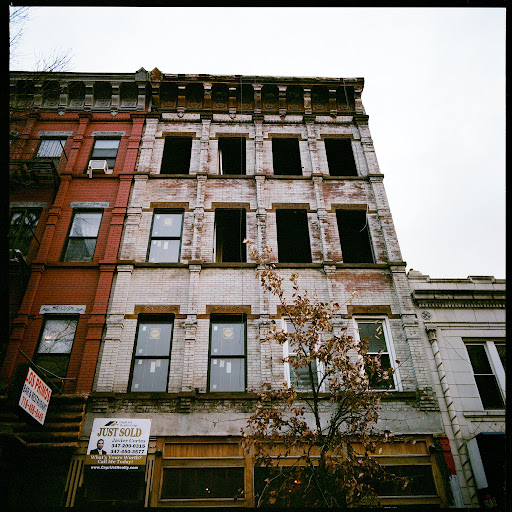Critics of New York City’s tax lien sales system say it encourages landlords to evict tenants and ignore building violations.

After 12 years of the city selling delinquent taxes and fines to a private, third-party trust, the owner at 702 Grand St. in Williamsburg sold to a buyer, who promptly emptied the building — except for one family on the second floor. | Peter Senzamici
Peter Senzamici and Allison Dikanovic | Oct. 15. 2021
[…]
When a property owner in New York is behind on their taxes or other municipal charges for more than a year, the city sells that debt at a discount to a private trust of investors in the form of what is called a “tax lien.”
The city gets upfront cash — about 73 cents on the dollar — and the investors take on the responsibility to collect the debt. Interest rates can be as high as 18%, compounded daily. That, plus fees charged by the debt servicer, can make original debts balloon seemingly overnight. In addition to charging high interest rates and fees, the lien trust can also foreclose on properties and sell them at auction.
Since 1998, 702 Grand St. has been on the city’s tax lien sale 12 times. The most recent sale, in 2019, was for a debt of nearly $38,000.
“Being young, I didn’t know when it was happening with the liens,” Alicea said. “These are the things no one teaches you in life.”
“It Was a Family Building”
Former Mayor Rudy Giuliani created the tax lien sale in 1996 as a way for the city to enforce property tax collection without taking on the burden of foreclosure, while also collecting some of the city’s debt. Prior to the tax lien sale, the city regularly foreclosed on tax-delinquent properties through a process called in-rem foreclosure. But during the capital flight of the 1970s and 1980s, the city had become burdened with a huge inventory of decrepit buildings.
“The city owned 60% of the units in Harlem in the 1980s,” said Mark Willis, senior policy fellow at the NYU Furman Center and former deputy commissioner of development at the Department of Housing Preservation and Development. “That’s how much abandonment had taken place there.”
Supporters of Giuliani’s plan claimed that private owners would do a better job of revitalizing financially stressed buildings than the city would, while the prospect of lien sales could serve as a cudgel to encourage delinquent owners to pay their taxes.
But the actual results of lien sales have been mixed, especially for multifamily buildings.
Although New York’s tax lien sale is intended to incentivize property owners to pay their taxes, the process of selling liens can pressure owners to sell their buildings to speculators or cut corners with maintenance to make up for the debt owed — all without oversight from the city and at the expense of tenants who are unaware of what’s happening behind the scenes.
In 2019, the city sold more than $120 million of tax liens and received about $74 million in the sale, according to the Department of Finance and the City Comptroller’s office.
The next year, nearly 1,000 foreclosure cases were filed.
[…]
Read full article, and see gorgeous photos of the people involved, here.
